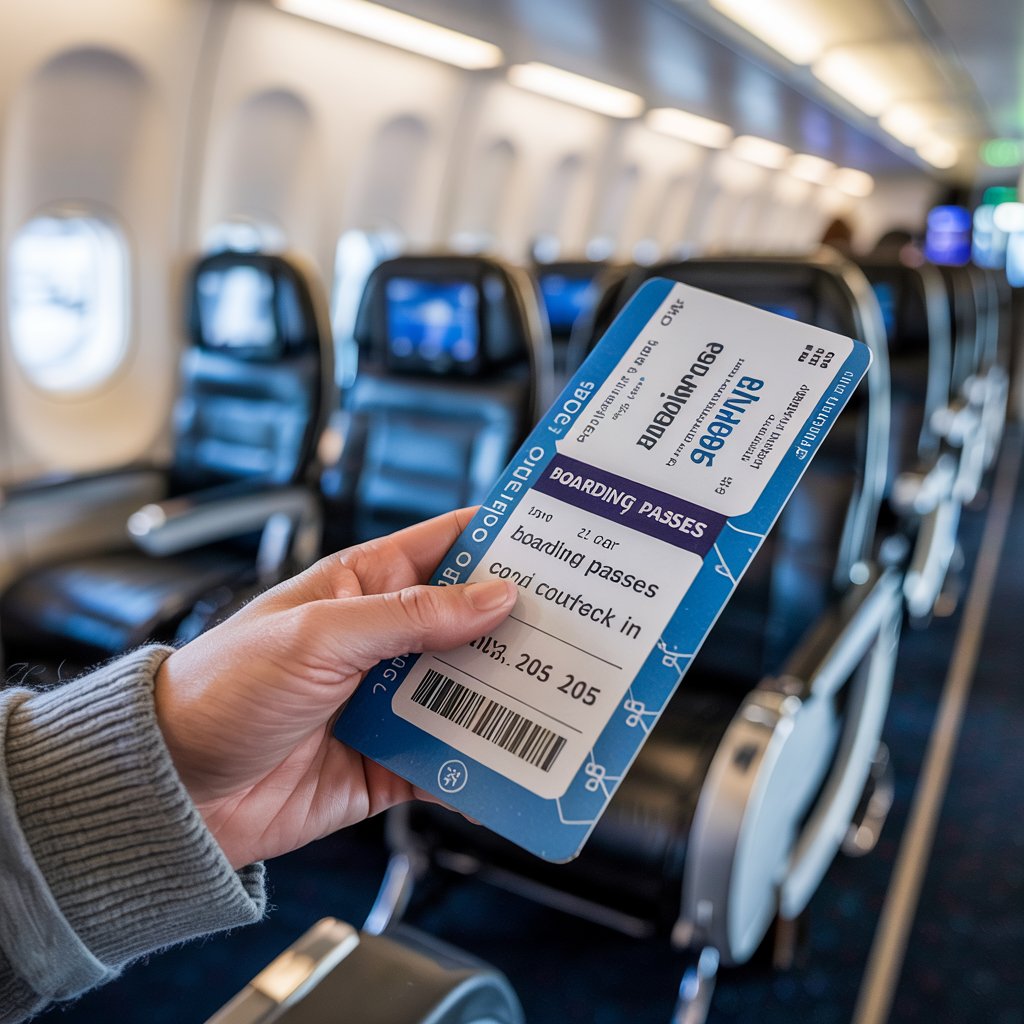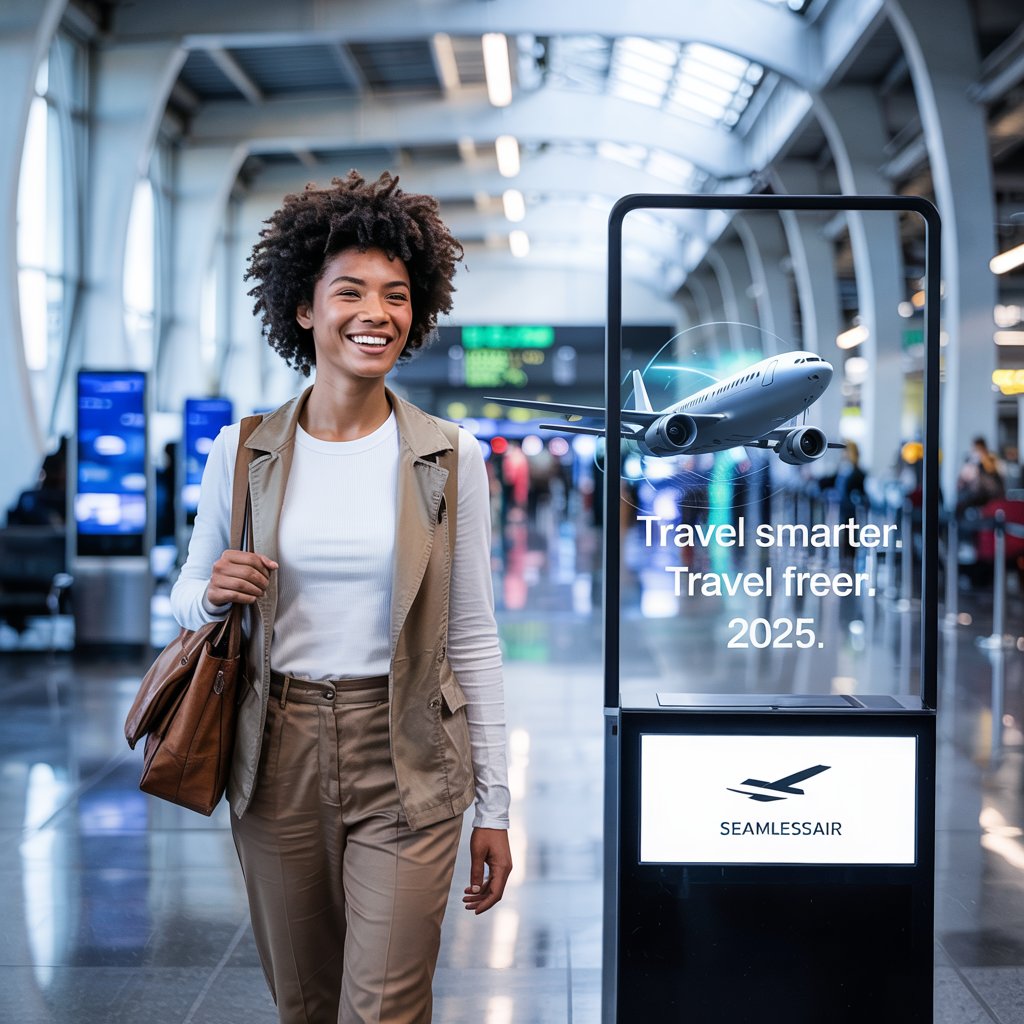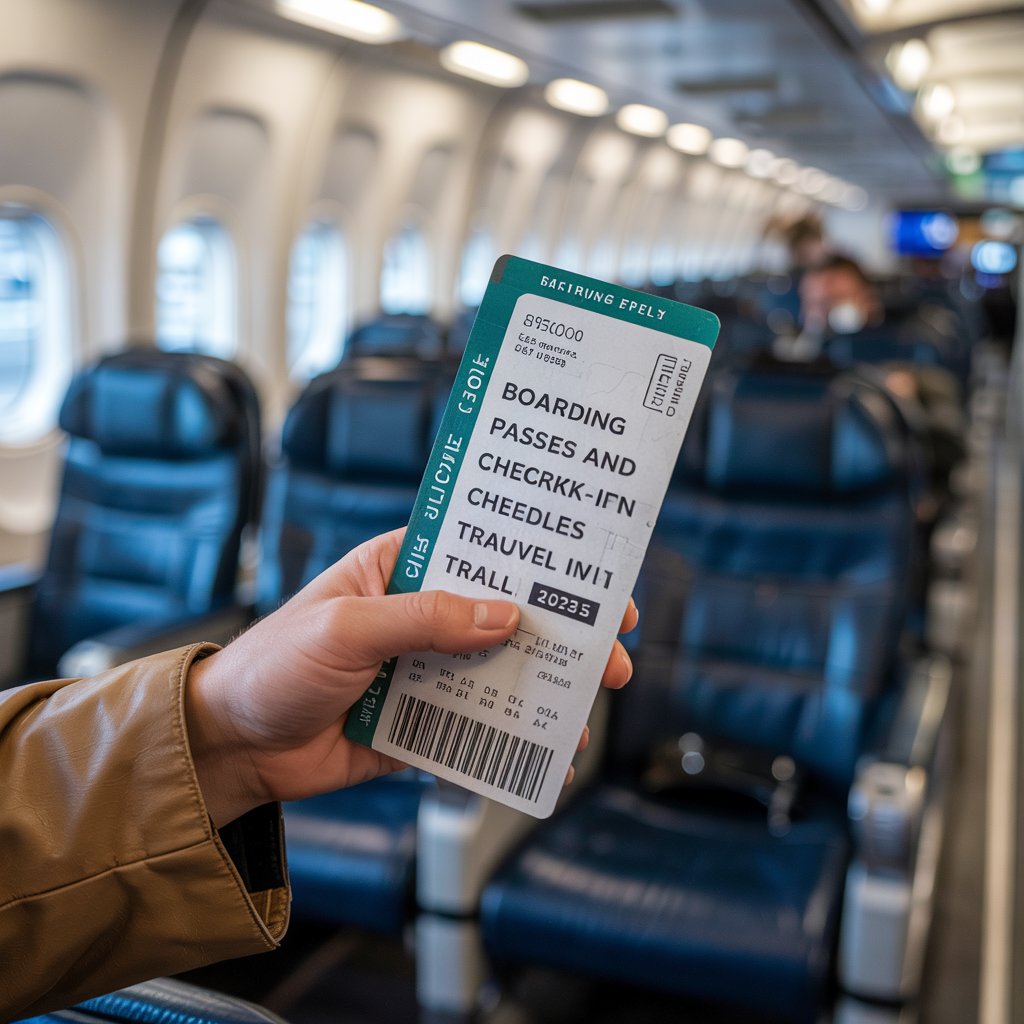1. Introduction
Checking in, getting a boarding pass, going through security, and finally getting on a plane have always been necessary steps in air travel. But what if two of those steps — check-in and boarding passes — were no longer needed? That might actually happen in 2025. With rapid advances in biometric technology, AI, and smart airport systems, the future of flying could be more seamless and paperless than ever before.

2. The Evolution of Air Travel Tech
Travel has already changed dramatically over the past decade. Online check-ins replaced traditional ones. Paper boarding passes were replaced by mobile ones. Travelers began tagging their own bags and scanning passports at automated gates. These changes were all driven by the need for speed, security, and convenience. Now, we’re on the verge of the next big leap — one that might eliminate check-in and boarding passes entirely.
3. What’s Replacing Check-in and Boarding Passes?
The future is all about biometrics and automation. At every stage of your journey, facial recognition, iris scanning, and fingerprint identification are being used to verify your identity. Digital identity systems linked to government databases or secure airline profiles can confirm who you are — no need for paper documents or manual check-ins. All this is made possible through technologies like AI, mobile integration, and cloud-based passenger processing.
4. How It Will Work: A Traveler’s 2025 Journey
Imagine arriving at the airport and walking straight into the terminal. Cameras scan your face and automatically match you to your flight. When you drop off your bag at a self-service kiosk, your identity is checked once more. Your biometrics allow you to board without the need for a boarding pass at security. At the gate, a smart boarding area scans your face and allows you to board without lifting a finger. The whole journey feels frictionless — and much faster.
5. Benefits of Scrapping Boarding Passes and Check-In

There are several advantages:
- Shorter lines and less waiting time.
- Higher security, since biometrics are harder to fake than IDs.
- Fewer touchpoints, making travel more hygienic and efficient.
- Eco-friendliness, by reducing paper waste.
- Better passenger flow, leading to fewer delays and smoother operations at busy airports.
6. Challenges and Concerns
Despite the benefits, some issues need attention:
- Privacy: Where is your facial data stored? Who has access to it?
- System reliability: What if the tech fails mid-process?
- Digital divide: Not all passengers have smartphones or are comfortable with tech.
- Consent: Should travelers be required to participate in biometric systems?
These are valid concerns that airports, airlines, and regulators must address carefully.
7. Global Adoption: Who’s Leading the Way?
Some countries and airlines are already testing or implementing these technologies:
- Singapore Changi Airport and Dubai International are global leaders in smart airport tech.
- Delta Air Lines and British Airways have trialed facial recognition for boarding.
- The US Transportation Security Administration (TSA) is testing biometric verification at select airports.
These early adopters are setting the stage for wider rollout by 2025.
8. When Will This Become the Norm?
By the end of 2025, experts anticipate that many major international hubs will have this technology in place. Full global adoption may take longer, depending on infrastructure, regulations, and passenger readiness. To help accelerate the transition, governments and aviation organizations like IATA are working on universal digital identity standards.
9. What Travelers Should Know and Prepare For
- Preparation for travelers is as follows:
- Enroll in airline or government biometric programs if available.
- To electronically manage flights and updates, download the airline’s mobile app.
- Learn how your data is used and read privacy policies.
Check to see if your passport has biometrics, as some systems may require them. Staying informed will help make the transition smoother and less intimidating.

10. Conclusion
The future of air travel is closer than we think. By 2025, we may no longer need to fumble with boarding passes or rush to check in hours before a flight. A biometric scan, on the other hand, might serve as our airport pass. The advantages in terms of speed, convenience, and safety cannot be denied, despite the fact that there are real issues to consider. The question now is — are we ready to fly into this new era.
FAQs: The Future of Air Travel Without Boarding Passes and Check-in
Q1: Will boarding passes really be gone by 2025?
A: Many major airports and airlines are moving toward biometric-based boarding systems. While not all airports may adopt this by 2025, it’s expected that a significant number of international routes will no longer require traditional boarding passes by then.
Q2: If I don’t have a boarding pass, how do I get on a flight?
A: Your face or biometric ID will become your boarding pass. Cameras or scanners will match you to your flight at various checkpoints, including bag drop, security, and boarding. No paper or mobile pass is required.
Q3: Will I still need to check in online or at the airport?
A: “Check-in” could become automatic in the new system. When you get to the airport, biometrics will be used to verify your identity, and you will be considered checked in. However, some airlines may still offer optional check-in for now.
Q4: Is biometric data safe and private?
A: Biometric systems are designed with encryption and data protection protocols. However, privacy concerns remain, especially regarding how long your data is stored and who has access to it. Always review privacy policies before opting in.
Q5: What if I don’t want to use biometric systems?
A: In most places, using biometric systems is optional — at least for now. If they so choose, travelers can typically opt for manual check-in and conventional boarding passes, albeit with a longer wait.
Q6: If the technology fails, what happens?
A: Airports have backup systems in place. If biometric scanners fail, staff can manually verify your identity and issue a boarding pass or assist you through traditional processes.
Q7: Do I require a unique passport to use this system?
A: A biometric or e-passport (with the chip symbol on the cover) may be required for full compatibility with future systems. This feature is already present on the majority of current passports.
Q8: Is this change occurring globally?
A: Adoption will vary by country and airport. While some regions, such as the United States, the United Kingdom, Singapore, and the United Arab Emirates, are leading the way, others may take longer due to differences in infrastructure and regulations.
Q9: Can travelers who are younger or older use biometric systems?
A: Yes, but in some cases, biometric accuracy can vary with age. Airports usually have alternative options or staff assistance available for travelers who may not be easily recognized by the systems.
Q10: How can I prepare for this new system as a traveler?
A: Make sure you have a valid biometric passport, keep your airline’s app updated, and stay informed about biometric options at your departure and arrival airports. If available, you can also pre-enroll in facial recognition programs.
